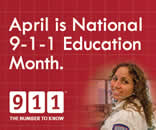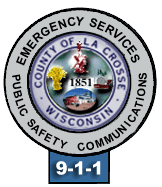-
HOW DO I
Apply For
Find
Pay
Water Testing

-
RESIDENTS
Health & Wellness
Senior & Assisted Living
Environment
Families & Individual Support
Financial Assistance
Library
Safety & Justice
Broadband

-
BUSINESS
Community Development
GIS Mapping
Ordinances
Requests For Proposals
Start A Business
Zoning, Planning & Land Information
Broadband

-
VISITORS
Campgrounds & Shelters
Downtown Guide
Hunting & Fishing
Parks/Facilities
Explore La Crosse

-
YOUR GOVERNMENT
County Board
Ordinances
Resolutions
Elections
Elected Officials
State
Facilities
Municipalities: Cities, Villages and Towns
- CITY OF LA CROSSE
- CITY OF ONALASKA
- TOWN OF BANGOR
- TOWN OF BARRE
- TOWN OF BURNS
- TOWN OF CAMPBELL
- TOWN OF FARMINGTON
- TOWN OF GREENFIELD
- TOWN OF HAMILTON
- TOWN OF HOLLAND
- TOWN OF MEDARY
- TOWN OF ONALASKA
- TOWN OF SHELBY
- TOWN OF WASHINGTON
- VILLAGE OF BANGOR
- VILLAGE OF HOLMEN
- VILLAGE OF ROCKLAND
- VILLAGE OF WEST SALEM
School Districts


Emergency Services
9-1-1 Tips
What to do When Calling 9-1-1
The first thing a caller needs to do is remain calm and clear when calling 9-1-1. A trained dispatcher will ask questions to obtain the information they need to send you help. It is very important to answer all the dispatcher’s questions and wait for the dispatcher to advise it is okay to hang up the phone. Information must be relayed to the emergency responders, and sometimes the needed information may not be obvious to the caller.
Dispatchers are much like the news media in that they need to know who, what, where, when, why and how – but not necessarily in that order. Here are some of the things you may be asked when calling 9-1-1.
Where: The first and most important piece of information that will be needed is the location of the emergency. Dispatchers will ask where the emergency is occurring, which may not necessarily be your address. Once dispatchers have a location, even if they are unable to get any more information, they can at least send help. Of course, more information would assist in the proper response; so again, stay on the line until the dispatcher says it is okay to hang up.
What: What is the emergency? Different types of emergencies get different types of responses. For example, not all accidents are responded to in the same way. If there are injuries, an ambulance and fire department medics or first responders are dispatched along with the police. If there is someone trapped in the vehicle or gas is leaking, additional fire department equipment and personnel are needed. If the accident is blocking traffic at a busy intersection, more officers may be needed for traffic control.
Who: Dispatchers will ask who is calling and what your telephone number is. Sometimes a call-back is needed to obtain further information. Sometimes, a witness to whatever happened may be important to the investigation of the incident. It is not always necessary to give your name and the dispatchers can honor requests of callers who wish to remain anonymous.
When, Why and How: Different types of emergencies prompt different types of questions from the dispatchers. Responding law enforcement officers, fire fighters and emergency medical responders need certain information depending on the kind of call to determine how they must respond. Specific questions will help to determine the priority of the call, as the public safety communications center is a busy place. Calls in progress will be responded to with a higher priority than those that occurred at an earlier time and are not so immediate.
Callers should be prepared to give suspect and vehicle descriptions. Not only do officers respond to take the report, but other officers may begin looking for the perpetrators.
Sometimes callers get upset with these questions, thinking it will create a delay in the response. This is not the case, as dispatchers work with a computer-aided dispatching system that allows partner dispatchers to send help while the call taker gets further information.
Busy, Busy, BUSY! The La Crosse County Public Safety Communications Center is full of activity. The dispatchers answer not only the 9-1-1 calls for La Crosse County, but also the non-emergency police lines. On average, the 9-1-1 calls account for less than 10% of the total calls the communications center receives in a day, since a typical day often generates more than 1,000 telephone calls. Nevertheless, when the distinctive 9-1-1 lines ring, the emergency dispatchers immediately answer.
“9-1-1! What is the address of the EMERGENCY?”
© 2025 La Crosse County. All Rights Reserved.


